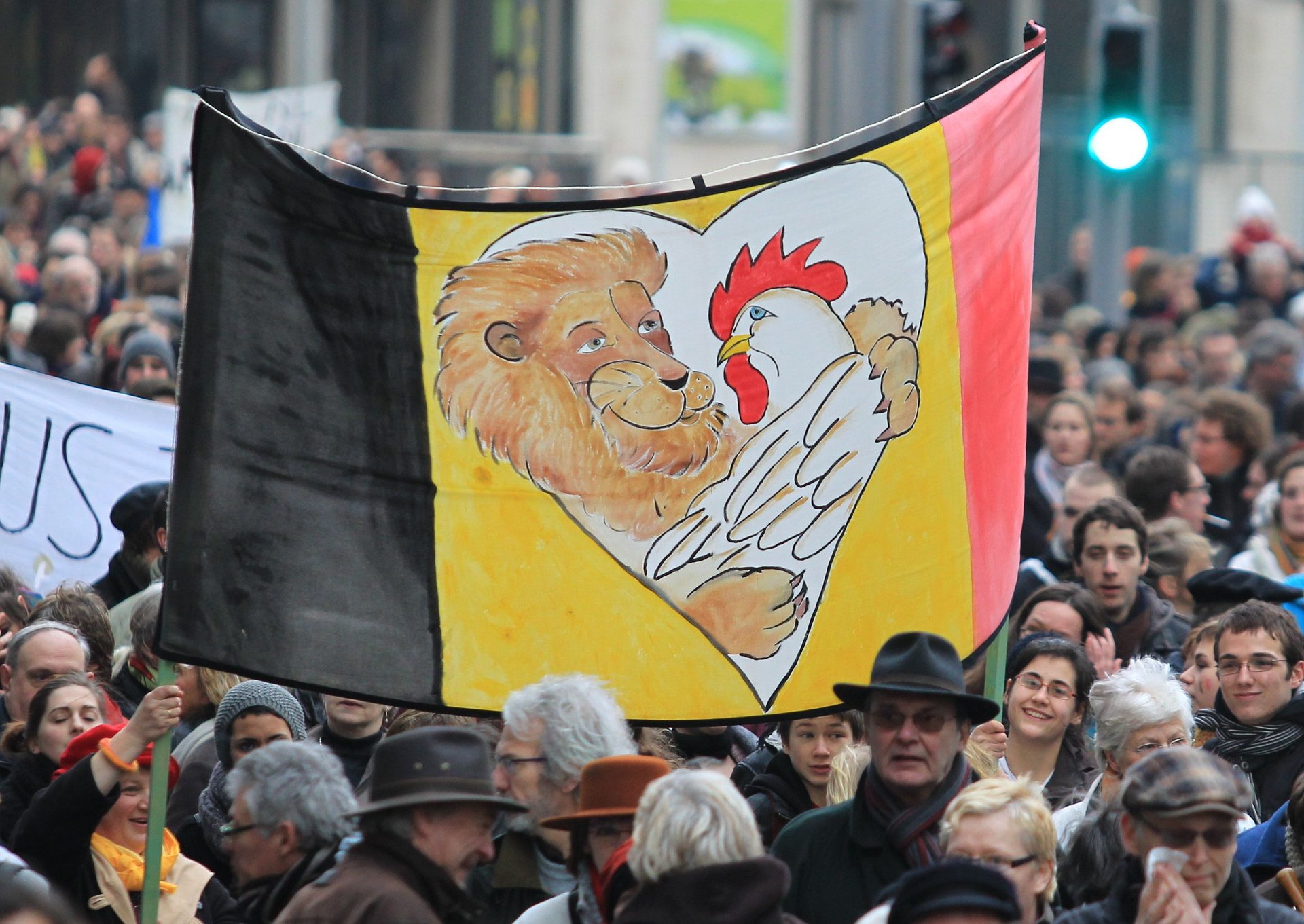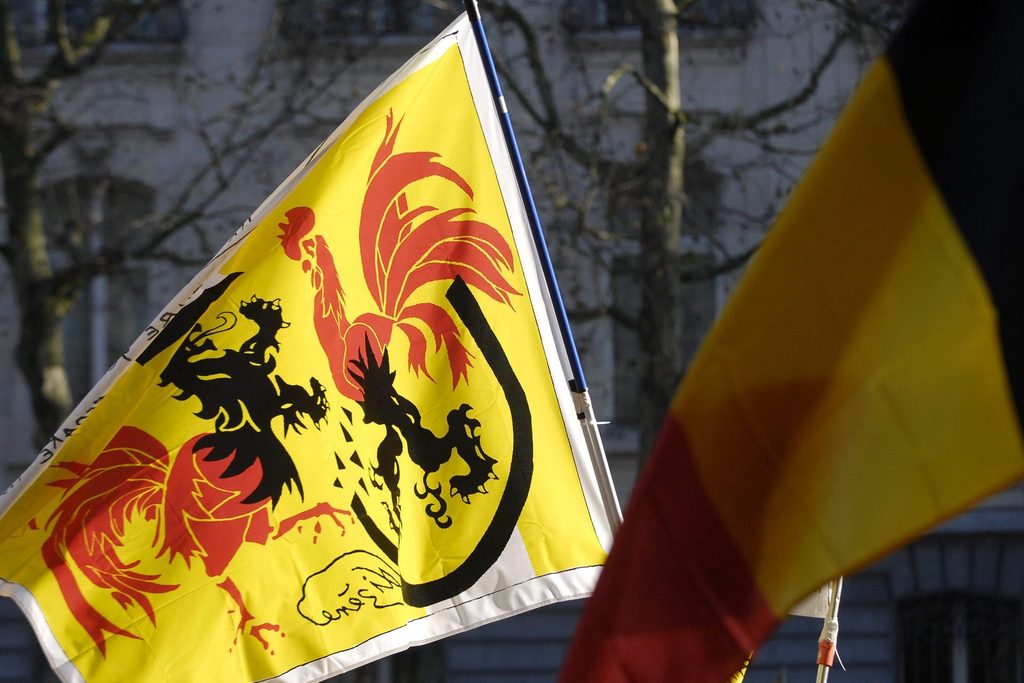On the eve of the Flemish regional holiday, Walloon Minister-President Elio Di Rupo on Monday called for greater cooperation with its northern counterpart to strengthen Belgian federalism.
The Flemish Community celebrates its annual holiday on Tuesday 11 July, evoking the victory of the Count of Flanders over the King of France outside Kortrijk in 1302, known as the 'Battle of the Golden Spurs' (the Guldensporenslag in Dutch). The Flemish lion flag will be present across the region – visible at the many celebrations, folk festivals and performances.
On Monday evening, former Belgian Prime Minister Di Rupo spoke at festivities in the Flemish city of Bruges, affirming that he is "resolutely in favour of a stronger federal Belgium." His comments mark a clear opposition to efforts to make Belgium a confederalist system – an ambition of right-wing Flemish party N-VA that would give greater autonomy to the regions and allowing them to decide the extent to which they cooperate with other Belgian regions.
"I advocate strengthening cooperation in all areas between Wallonia and Flanders, between the governments, between Walloon companies and Flemish companies, and between citizens. I speak for systematic exchanges between Flemish and French-speaking schools. And that in an official and structural framework," De Rupo said.
Other priorities
At the end of last year, and ahead of next year's elections, the Flemish separatist rightwing N-VA party said it would not be part of Belgium's new Federal Government in 2024 without confederalism, which would greatly complicate the formation of a Federal Government.
The N-VA has sought to convince Flemish voters ahead of the 2024 elections that the Federal Government will be unable to control Belgium's current budget deficit, arguing that confederalism alone can offer a solution.

A large Belgian flag with the Flemish lion and the Walloon rooster embracing each other pictured during a demonstration. Credit: Belga/ Julien Warnand
Earlier in the evening, Flanders' Minister-President Jan Jambon repeated this argument, saying that a "structural transformation" of the country would be necessary after the 2024 elections. But last month Jambon acknowledged the need for Flemish support, deeming the current level of support (estimated at 20%) as insufficient.
Di Rupo argued that the priorities of the vast majority of people "clearly lie beyond institutional issues"; he called on authorities to instead focus on the "concrete, material" concerns of citizens, such as healthcare, food prices, energy prices, global warming and wages, adding that people expect the authorities to provide concrete solutions to these problems.
Related News
- 'If Vlaams Belang cleans its act, why not?': De Wever hints at Flemish nationalist coalition
- Flemish lion with or without red claws: What's the difference and why does it matter?
The Walloon premier added that cooperation only works if politicians want it to, and went on to list the Walloon Region's efforts to address regional differences, including its €7 billion recovery plan which he argued will also have a positive impact on the Flemish economy.

